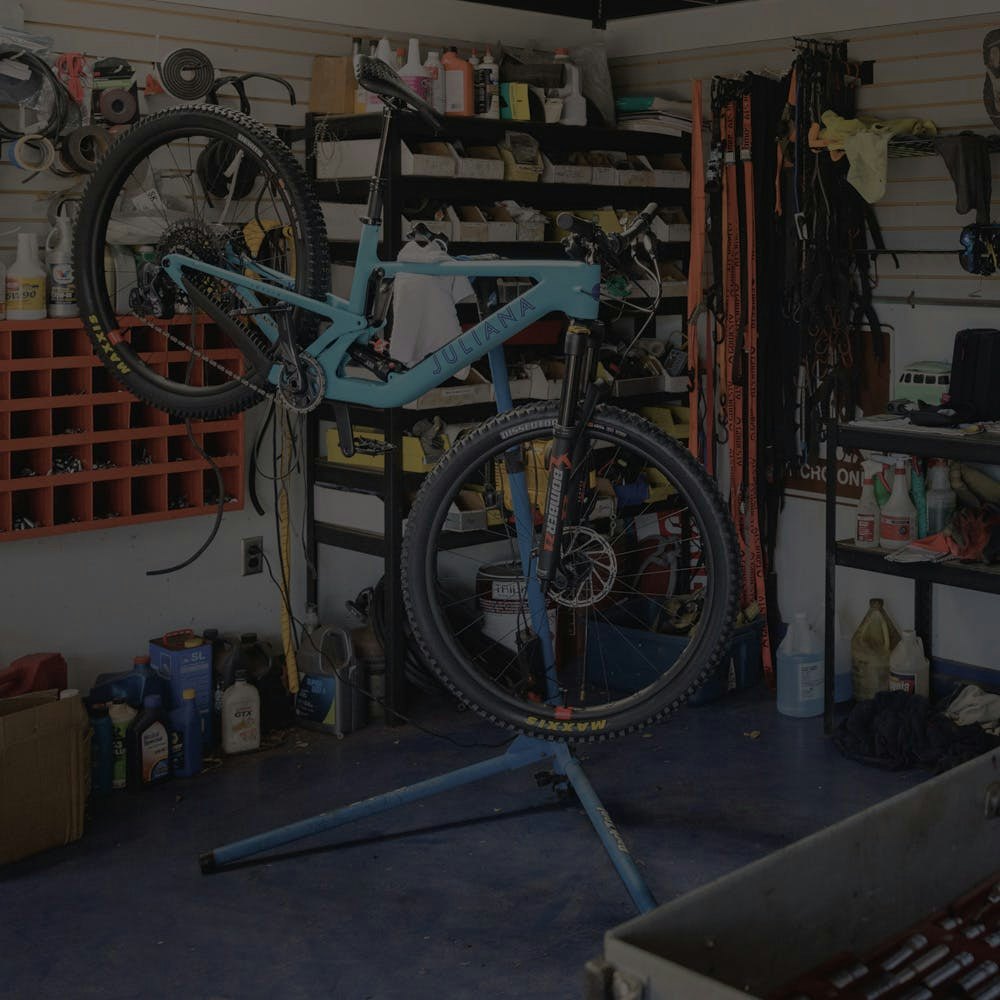Setup Guide
So you’ve got yourself a shiny new Juliana, now it’s time to make it truly your own. From suspension setup to saddle height, this guide will show you the basics of bike setup — without any mansplaining.
Setup Guide
So you’ve got yourself a shiny new Juliana, now it’s time to make it truly your own. From suspension setup to saddle height, this guide will show you the basics of bike setup — without any mansplaining.
Bar Width
Bar width ultimately comes down to body size and riding type, but a few other factors can help you decide how wide you want your bars to be. Narrow bars are generally better for smaller riders as they proportionally fit better, but other benefits include squeezing through small gaps and more agile steering. Conversely, wider bars are usually better suited for larger riders but also have the advantages of more precise steering input, more lateral stability, and more leverage. You can also pick your bar width based on your riding style. Racing enduros on a Roubion? You’ll probably want to choose the widest bar you feel comfortable riding with. Riding cross-country on a Wilder? Go narrower for faster steering.
Stack
Along with width, stack, or bar height, can have a significant effect on efficiency and control. Generally, bar height grows with rider height, but different riding styles also require different stacks. If riding steeps is your thing, then a higher stack will give you more control and help keep some weight over the rear end when descending. If you’re an XC powerhouse, a lower stack will put you in a more efficient position to make the most power while climbing. For trail riding, a good place to start is to have the handlebars a little bit lower than level with your saddle with your dropper post full extended.
Bar Roll
Bar roll refers to how far forward or back you rotate your handlebars within the stem, and it's generally another setting that comes down to personal preference. A good starting point is to look at your bars horizontally and roll them forward until the tips are just up from horizontal—then head out for a ride and see how they feel. After you get a baseline, start experimenting: Roll the bar forwards, and you’re left with more upsweep and less backsweep, which can help bring your elbows out and bring your weight forward. Roll it backward towards horizontal, and it can help keep your weight back on steep descents.
Bar Roll
Bar roll refers to how far forward or back you rotate your handlebars within the stem, and it's generally another setting that comes down to personal preference. A good starting point is to look at your bars horizontally and roll them forward until the tips are just up from horizontal—then head out for a ride and see how they feel. After you get a baseline, start experimenting: Roll the bar forwards, and you’re left with more upsweep and less backsweep, which can help bring your elbows out and bring your weight forward. Roll it backward towards horizontal, and it can help keep your weight back on steep descents.
Brakes
Brake lever position is another parameter that's dependant on your riding style and size. Experiment with different positions to determine your most comfortable position on the trails you ride. A good starting point, though, is at about 30 degrees down from horizontal. Give it a try and if your hands feel like they’re going to roll forwards when the terrain gets rough or steep, your levers might be positioned too far down. On the other hand, too high, and you might not be able to get enough weight over the front wheel in certain situations or that your wrists are awkwardly bent. Again, take the time to experiment for best results.
Shifters and Dropper Lever
Unlike brake position, finding the best shifter and dropper lever position is fairly simple. Position these controls side-to-side so your thumb and finger can reach them with the least amount of movement. More movement means more time with a loose grip, which can lead to disaster if you happen to heat a sneaky bump. Rolling the controls fore and aft is somewhat limited by brake lever positioning, but with a little trial-and-error you can work out a quick, comfortable set-up.

